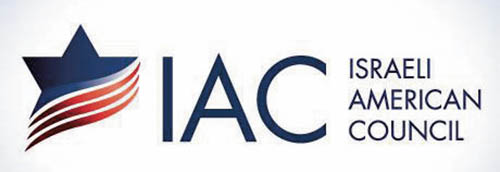


Like any other immigrant community, Israelis moving to the United States find comfort in joining each other for activities with their native language, customs and culture. For the past 10 years, the Kaplen JCC on the Palisades has given Israelis an address where they can come together in a fusion of Israeli and Jewish belonging. That connection is getting deeper, with the announcement that the JCC has entered into a joint venture with the Israeli American Council (IAC) to manage the JCC Israel Center. The two organizations have participated in programs with each other since the IAC established a regional council in 2013. Now they will work together to develop programs and share a “joint financial model.” Aya Schecter, who had been the director of the Israel Center, will be the IAC New Jersey Regional Director.
Jordan Shenker, CEO of the JCC, told The Jewish Link that the IAC and JCC had been independently reaching out to Israelis and now will be able to accomplish together what they had been doing separately. “The IAC has networks and partners in other communities and funding sources,” he said. “We have the infrastructure, facility base and some program models. We each bring our own set of assets and now we can leverage those assets together.”
Shenker estimates that there are now about 10,000 to 15,000 Israeli families in the area, with accelerated growth over the past three or four years. That number is showing up in the JCC’s pre-school—20 percent of the students are Israeli. Shenker said the infusion of IAC resources and management will allow the JCC to develop more targeted special-interest programs to Israelis, like Mommy and Me classes in Hebrew.
The Hebrew language is the common denominator of many programs for the Israeli community, Shenker said. “It’s comfortable, familiar, a connection to their heritage and culture.” Israeli films and author and book discussions in Hebrew are examples of cultural activities offered at the Center. Emek, an after-school Hebrew and cultural program with about 150 students, reinforces Hebrew language skills and education about Israel. The center has conducted parenting workshops in Hebrew about raising multi-lingual, multi-cultural children. Hebrew versions of English programs have also been offered.
Shenker said the IAC will be able to bring in people they have reached who weren’t familiar with the JCC Israel Center, or didn’t think it catered to their needs. “Now we can say we’re in this together, speaking with one voice.”
Specifics about future activities will wait for the new partnership’s leaders to do a little research. Shenker said his strength was in making the shidduch, bringing the experts and resources together. They will create the programs after asking people, “Now that we’re here, what do you need and want?”
A new area of focus will be better integration of Israelis with the Jewish American community, Shenker said, and it will be easier with the new IAC partnership. “The two groups are distinctive, yet together. We are going to make a conscious and specific effort to engage the Israeli and Jewish communities with each other.” Some programs are already doing this, he noted. The Modern Orthodox community in particular participates in Hebrew-language programs as many have achieved fluency from learning in day school. Jewish holidays also bring out a large percentage of both groups. “The Purim carnival drew about 2500 people and 50 to 75 percent of them were from the Israeli and Modern Orthodox communities,” he said.
While the nexus of Israeli/American/Jewish identity may sound obvious, it is not. “There are higher assimilation rates in the Israeli community,” said Shoham Nicolet, CEO of the Israeli American Council. “In Israel, you take Jewish life for granted. It doesn’t happen automatically here,” he said. “Jews living in the Diaspora for many years know it takes effort to remain Jewish.”
Shoham, an Israeli entrepreneur who founded several ventures in educational technology, worked with a group of Israeli-American leaders to begin the IAC in 2007 to strengthen the Jewish identity of the next generation and the bond between Israelis and Jewish Americans. The IAC is headquartered in Los Angeles and Shoham has been overseeing its expansion throughout the United States. “We focus on the peoplehood—culture, language, holidays—and religion is a part of it,” he said. “Our advantage is that we are Israeli Americans—we grew up in Israel, love Israel, but at the same time we are here in the US and understand American culture. We bring thousands of Israeli Americans to celebrate Shabbat in the cities where we are located.”
The Kaplen JCC on the Palisades is one of the most successful in the nation, Shoham said, and a natural partner for a joint venture. He hopes the partnership will be an incubator for programs that can be replicated at JCCs throughout the country.
By Bracha Schwartz










